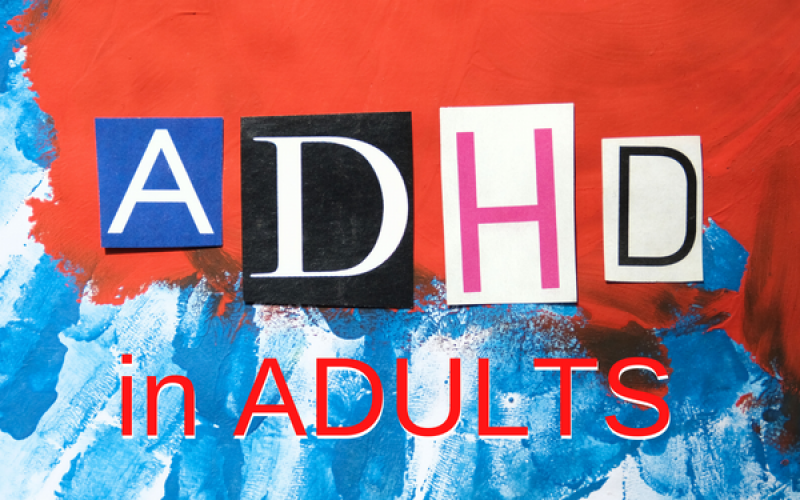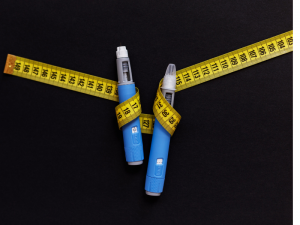ADHD is a developmental disorder and mental health condition that affects behaviour and is often thought of as a condition that only affects children. However, research suggests that around 4% of adults have this condition, but many are oblivious because it was not recognised in childhood.
It’s common to hear that mid-life adults slip through the crucial window for assessment and treatment because parents/caregivers, or teachers don’t understand the symptoms of ADHD. Sadly, this often results in significant and ongoing problems in a person’s life.
 Symptoms in adults
Symptoms in adults
In adults, the symptoms of ADHD are more difficult to define; signs are often more subtle and can differ significantly compared to those seen in children. For example, while Inattentiveness tends to remain constant, hyperactivity tends to decrease in adults.
The following is a list of symptoms associated with adults with ADHD.
- Carelessness and lack of attention to detail
- Emotional instability
- Continually starting new tasks before finishing old ones.
- Poor organisational skills
- Lack of motivation, irritability, aggressiveness
- Inability to focus or prioritise
- Continually losing or misplacing things.
- Easily overwhelmed by tasks or projects.
- Forgetfulness
- Restlessness and edginess
- Difficulty keeping quiet and speaking out of turn
- Blurting out responses and often interrupting others
- Mood swings, irritability and a quick temper
- Inability to deal with stress
- Extreme impatience
- Impulsiveness and risk-taking, often with little or no regard for personal safety or the safety of others–for example, driving dangerously.
 Related conditions in adults with ADHD
Related conditions in adults with ADHD
As within children, ADHD in adults can occur alongside other conditions, including:
- Depression
- Personality disorders
- Bipolar disorder
- Obsessive-compulsive disorder (OCD)
Diagnosis in adults
For adults with possible ADHD, their GP is the first stop in getting an assessment; symptoms may look different from older ages; for example, hyperactivity may appear as extreme restlessness. Symptoms can become more severe when the demands of adulthood increase.
Diagnosing ADHD in adults is more problematic because There is no agreement about the diagnosis criteria. Notably, under current guidelines, a diagnosis of ADHD in adults can only be confirmed if symptoms have been present since childhood. Sometimes, an adult may be diagnosed if they have five or more of the symptoms of Inattentiveness or five or more of hyperactivity and impulsiveness listed in the diagnostic criteria for children (detailed in ADHD in children). ADHD cannot develop for the first time in adults because it’s a developmental condition.
For an adult to be diagnosed with ADHD symptoms, there should be a persistent moderate effect on varied areas of life, such as
- Underachieving at work or in education
- Difficulty in relationships with partners
- History of reckless and dangerous driving
- Difficulty making or keeping friends
Plus
- Your symptoms began during childhood and are ongoing.
- A mental health condition cannot explain your symptoms.
ADHD and Perimenopause
Adults with ADHD may see their symptoms fluctuate over time; some find that their symptoms get worse during the menopausal transition; there is some crossover between the mental health the cognitive symptoms of ADHD and Perimenopause. It’s not uncommon to experience irritability, difficulty focusing and low mood during Perimenopause and menopause due to dramatic fluctuations in hormonal levels.
Studies have found that decreasing levels of estrogen and progesterone during Perimenopause can cause ADHD symptoms to become more severe because when hormone levels drop, it affects the levels of brain chemicals, including Dopamine and Serotonin, which can lead to worsening ADHD symptoms. Hormone Replacement Therapy (HRT) may be helpful as a part of the management of ADHD in mid-life and beyond.
 Treatment; medication
Treatment; medication
Medication is not a permanent cure for ADHD but may help someone with the condition concentrate better, be less impulsive, feel calmer, and learn and practise new skills. Five types of medicine are licensed for treating ADHD and divided into two groups; stimulant and non-stimulant medications.
Some medications must be taken daily, while others can be taken on school or work days. Small doses are prescribed initially and may increase gradually; regular check-ups and periodic breaks are required to ensure the treatment works effectively and check for signs of any side effects or problems.
Stimulant medications
Stimulant medications are the traditional treatment for ADHD. For some people, these medications are the best option, but not everyone with ADHD tolerates stimulant medications well. Additionally, they can have harmful interactions with other prescription medications.
Non-stimulant medications
Non-stimulant medications are another and include some antidepressants and non-stimulants specifically made for ADHD. Like stimulants, these medications aren’t the right choice for everyone with ADHD.

| Medication | Common side effects include: |
| Methylphenidate is the most commonly used medicine for ADHD.
It increases activity in the brain, particularly in areas that control attention and behaviour. |
|
| Lisdexamfetamine also improves concentration, focus and attention while
reducing impulsive behaviour. It is a second-line treatment if Methylphenidate has not helped over six weeks. Adults may be offered lisdexamfetamine as the first-choice medicine instead of methylphenidate. |
|
| Dexamfetamine is similar to lisdexamfetamine and works in the same way. |
|
| Atomoxetine works differently from other ADHD medicines.
It’s a selective noradrenaline reuptake inhibitor (SNRI). It increases the amount of noradrenaline in the brain to aid concentration and help control impulses. |
|
Talk therapy
Tips for Adults with ADHD
If you’re an adult living with ADHD, you may find the following helpful advice:
- Make lists, keep diaries, stick up reminders and set aside time to plan what you need to do.
- Exercising regularly is a great way to let off steam by
- Find ways to help you relax.
- Work and university; speak about your condition and ask what adjustments can be made to support you.
- Note you’ll need to tell the Driver and Vehicle Licensing Agency (DVLA) if your ADHD affects your driving.
- Join a support group. AADD-UK is a charity specifically for adults with ADHD.
 Final words
Final words
There’s no perfect solution for ADHD, so don’t be afraid to experiment with available options until you find something useful. While there is not enough research to support that alternative and complementary treatments are effective, some people with ADHD report hands-on therapy is helpful because it can help reduce stress. As always, talk with your doctor before trying any alternative treatments.
Unfortunately, individuals with ADHD are often unfairly labelled and discover reasonable adjustments aren’t made for them to thrive. For these reasons and more, raising awareness about this condition is essential to dispel the myths surrounding ADHD and break the stigma.
Resources
AADD-UK is a charity specifically for adults with ADHD.







